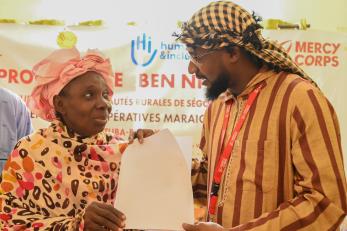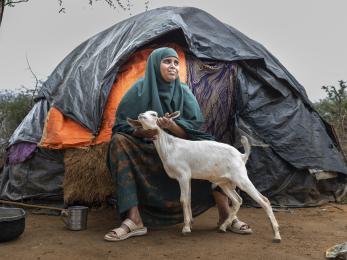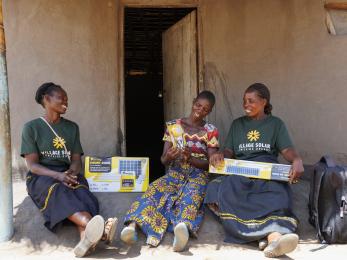Building Evidence for Climate Adaptation and Peacebuilding: Insights from Mali

The climate-conflict nexus has garnered increasing attention from civil society, policymakers, donors, and academics, as the interconnected challenges of climate change and conflict pose significant risks in fragile contexts worldwide. For over a decade, Mercy Corps has been at the forefront of addressing this intersection, designing and implementing programs that mitigate climate-related and conflict-driven vulnerabilities. Ben ni Baara (“Work and Peace” in Bambara) was one such initiative that exemplified this integrated approach.
Ben ni Baara was a human security program funded by Sida and implemented by Mercy Corps in collaboration with International Alert and Humanity & Inclusion from 2020 to 2024. It was a human security program aimed at addressing the root causes of conflict and reducing the spread of violence among communities in central and southern Mali. The program applied cross-sectoral approaches, including climate adaptation strategies, to tackle resource-driven tensions and strengthen community resilience. This program design created opportunities for novel evidence generation on peacebuilding and climate adaptation.
Through Ben ni Baara, Mercy Corps conducted both a qualitative study examining the role of local peace committees (LPCs) on social cohesion as well as a mixed-methods study exploring how conflict and climate outcomes varied based on different types of program interventions. These studies resulted in the reports Building Bonds of Trust and Weathering Change, respectively. Together, these reports examine how locally led conflict resolution structures and climate adaptation efforts enhance resilience and social cohesion within central and southern Mali.
Findings from Ben ni Baara expand our growing evidence base on the climate-conflict nexus, emphasizing how integrated approaches enable communities to cope, adapt, and thrive amidst shocks and stressors related to climate and conflict. Each report provides critical insights into the intersection of climate adaptation and peacebuilding in fragile contexts, complete with lessons and recommendations aimed to inform policymakers, donors, and practitioners in designing and funding programs that adopt systemic, multi-sectoral approaches to build community resilience and social cohesion and that address climate-related shocks and stressors as a means of violence prevention.
Read the two-page combined research overview for these two reports:
- Building Bonds of Trust: The Relationship Between Conflict Resolution Committees and Social Cohesion in Mali
- Weathering Change: Exploring Connections between Climate Adaptation and Conflict Prevention in Mali
These reports were developed with generous funding from Sida.
Building Bonds of Trust: The Relationship Between Conflict Resolution Committees and Social Cohesion in Mali
This report highlights findings from a qualitative study on the role of Ben ni Baara’s Conflict Resolutions Committees (CRCs) in influencing community-level peacebuilding, which broadens the peacebuilding evidence from Mali regarding the important connection between local peace committees and social cohesion.
Weathering Change: Exploring Connections between Climate Adaptation and Conflict Prevention in Mali
This report, based on an exploratory mixed-methods study, examines how specific types of program interventions influence outcomes related to the climate-conflict nexus within the context of the Ben ni Baara program in central and southern Mali.
Read the full report
Read the Executive Summary
Review the Appendix

